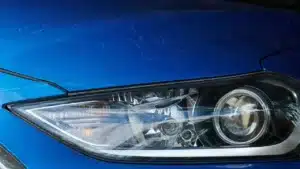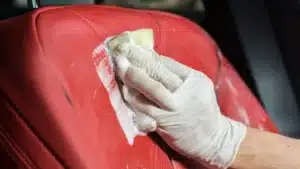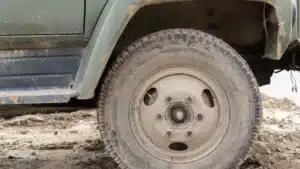Ants are social insects, and the moment one invades your vehicle, others will follow. However, knowing how to get rid of ants in car is critical to preventing the infestation from worsening. Moreover, driving is a fairly complex task that requires full attention, and a second of distraction can prove fatal.
So, you don’t want these invaders crawling over your body and distracting you while driving. Whether the invasion just started or has become full-blown, we’ll walk you through different methods to permanently and safely repel the tiny invaders from your vehicle.
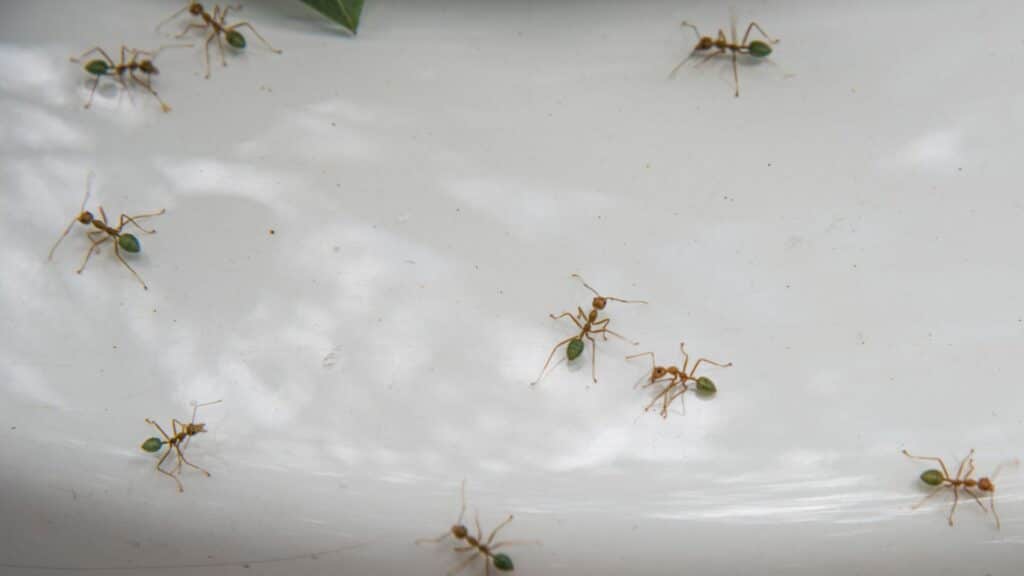
Why Are There Ants In Your Car?
Oftentimes, the swarm of ants in your vehicle is there because they found food. However, some other reasons could have attracted the tiny creatures. Below are some possible reasons behind the presence of ants in your vehicle:
1. Found a viable source of food or water
Unlike rodents, the swarm of ants in your vehicle isn’t looking to move in permanently. Instead, they were attracted by the leftover in your vehicle. They have an incredible sense of smell and can smell even the tiniest crumbs from several meters away.
So, if you have leftover food or snack in your vehicle, you should expect that the tiny invaders will see it as an invitation to treat. Ants are also drawn to water sources, such as damp carpets. The damp carpets in your car could probably be the source of the ant infestation you are currently experiencing.
Once one of these ants finds food, it will return to the colony, marking its path with a chemical scent to lead others to the food source. Even worse, other ants will follow the pheromone trail and renew it each time they find food, thus inviting more ants to the feast.
2. Parking close to an ant nest
Besides being attracted to the leftover or spillage in your car, parking near an ant hill increases the chances of an invasion. This is even more probable if you often park your vehicle outside. Depending on their species, the average ant colony can have between 20,000 to 100,00 ants. With such capacity, it is easy for one or two to enter your vehicle when foraging, and if they find favorable conditions inside, they’ll invite others.
3. Nesting opportunities
Another reason you have the tiny invaders crawling everywhere in your car is probably because their nest was destroyed. Ants are highly adaptable and will explore their surroundings in search of a new site to build a new nest if their nest is destroyed or full.
If your vehicle is around the corner when the colony is looking for nesting opportunities, they can establish a comfortable home within your car. And since the temperature inside the vehicle is almost similar to that of ant hills, the tiny invaders will get cozy inside your vehicle.
Different Methods on How to Get Rid of Ants in Car
Dealing with ants infestation in a car can be troubling because there are several hard-to-reach spots where these tiny creatures can hide. However, below are some effective methods on how to get rid of ants in car.
1. Deep clean your vehicle
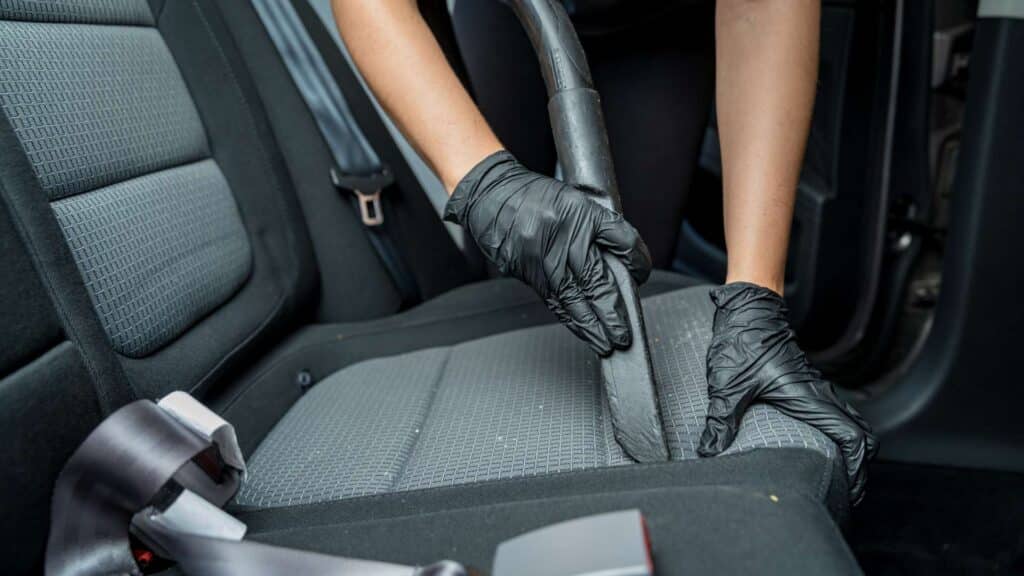
Usually, the swarm of ants in your vehicle didn’t move in with the intention to stay permanently. So, removing their food source and deep cleaning the vehicle will make them leave naturally. Cleaning the entire vehicle helps dissipate the smell attracting them.
Scrub all surfaces, and vacuum the entire vehicle. Clean the dashboard, steering wheel, and center console to remove liquid spillage that could attract these tiny invaders. While at it, don’t forget the carpets too. Cleaning liquid spillage from car seats can be a bit of work, so we made a detailed article on removing liquid stains from car seats.
2. Use ant baits for foraging worker ants
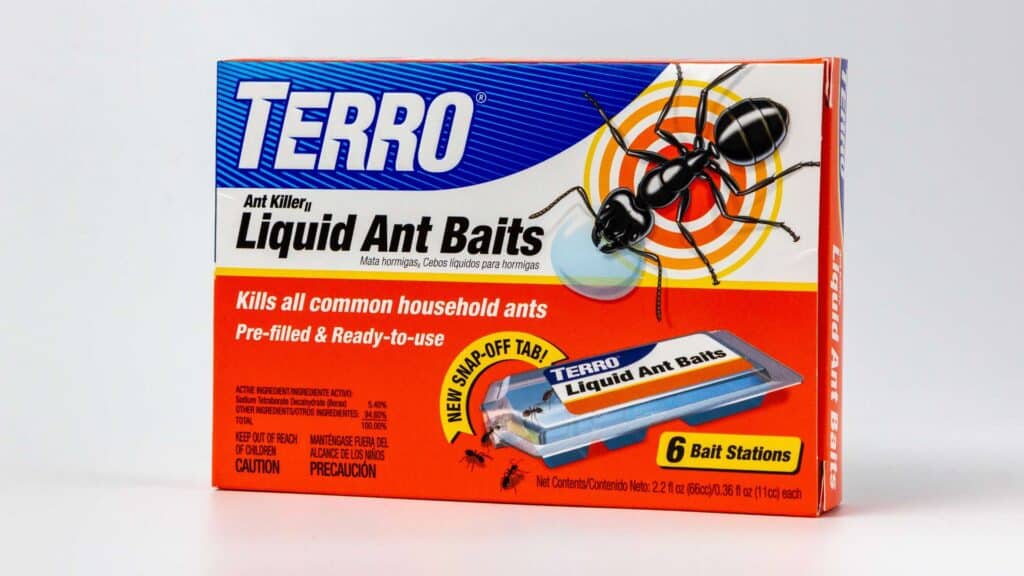
If the ants refuse to leave even after removing their food source and cleaning, setting ant traps is another effective and safe means of eliminating the tiny invaders. Ants baits are also very effective and your best bet if you can’t determine where they are coming from. Our top picks are TERRO Liquid Ant Baits and Raid Ant Baits — very potent stuff.
These ant traps contain insecticides and other materials that attract ants foraging for food. The idea is for the ants to enter the ant bait stations and take portions of the bait back to the nest, releasing pheromone trails while at it to direct other ants to the bait. The worker ants then feed the bait to other workers, larvae, and queens, thus eliminating the entire colony.
Both products are slow-acting and leave room for foraging ants to return to the nest and feed other members of the colony. All you need to do is find the ant trail in your vehicle or an area with ant activity and place the bait there. You can also place it close to the A/C vent, as ants tend to live in the car’s air filter.
Although it may take some time to eliminate the whole army or even several baits, these products do work. But whenever you use these products or any other type of ant bait, read their labels carefully and always keep them out of the reach of children or pets.
3. Spray bug poison

Using ant spray is another means to get rid of ants in your car. The only downside is that it is most effective when you’ve found their hiding place. Spraying bug poison on a few worker ants won’t make much difference.
Raid Ant & Roach Killer is a tested and trusted ant spray. It works to kill both rare and common ant species. Find their hiding place in your vehicle and spray them to control the infestation. After using the bug spray and eliminating the army of ants, leave your vehicle open for a couple of hours to eliminate the smell of the spray. You don’t want to be exposed to chemicals more than necessary.
4. DIY Solution
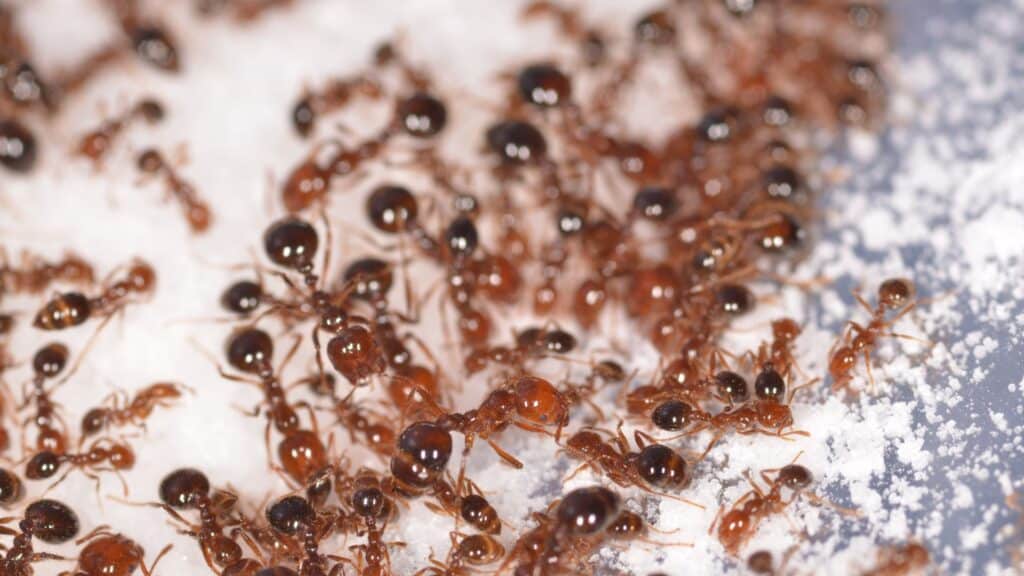
Tackling the ants in your car does not necessarily have to involve spending. You can also make do with some readily available products in your home. It is no longer news that borax kills ants. We’ll walk you through how to make it into a trap to get rid of ants in your car.
Mix three teaspoons of sugar with one teaspoon of borax. Pour in some warm water and stir the solution to dissolve it. Now, get a small container and make holes around it to create room for easy access to the DIY poison.
Pour the poison into the container. The ants in your car should make their way into the container to feast and will take some back to the colony. Since borax has a low toxicity rate, it leaves room for the worker ants to take some back to the colony and feed the others, thereby wiping out the entire colony.
Parking in the sun during the summer months is another method that can be used to kill ants hiding in the engine bay. During this period, vehicle temperature can exceed 120 degrees Fahrenheit, which is more than enough to eliminate ants. You can also leave the engine running while at it to heighten the temperature in the engine bay.
5. Professional pest control
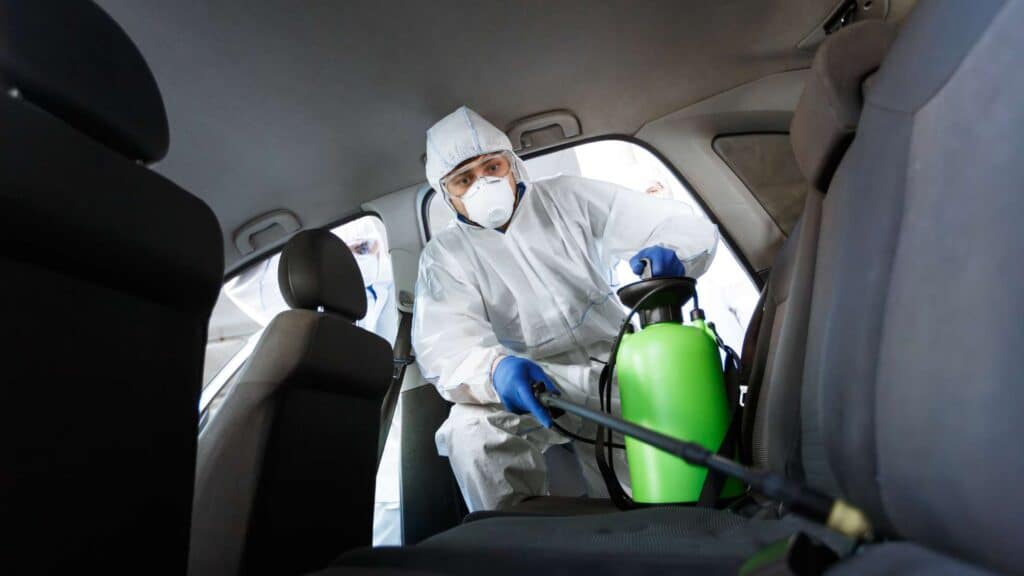
If all the above methods prove ineffective, you may have to bring in a pest control expert as your last resort. A pest control expert has the necessary skill and products to eliminate your ant problem effectively.
Signs of Ant Presence In the Car
When dealing with ants in cars, early detection of the invaders will help prevent a full-blown infestation and potential damage. Below are some telltale signs indicating the presence of ants in your car.
1. Visible ant trails
Seeing ant trails inside or on your vehicle exterior are the telltale signs you need to conclude ant presence. The ant trail often indicates they found a food source or nesting opportunity in your vehicle. But you also can’t rule out the possibility that you parked close to their nest.
These tiny insects release pheromone trails leading others from the colony to where the feast is happening — in this case, your vehicle. So, if they were drawn to your car because they found food or for some other reason, you must address the issue promptly by removing the source of attraction before the infestation worsens.
2. Accumulation of Ants
Ordinarily, spotting individual ants here and there shouldn’t be a cause for alarm. But if you observe an increased number of ants in your vehicle, it strongly indicates an infestation.
You should pay close attention to the A/C vent as ants often live in the air filter and enter the vehicle cabin through the vents. You should also take note of other areas they congregate in and investigate them to ascertain what’s attracting them. While these insects may seem harmless, you shouldn’t leave the problem unattended as they could cause severe damage to your vehicle.
3. Unusual ant activity
The presence of ants in your vehicle cannot go unnoticed because one of their impressive capability is the ability to thoroughly and efficiently explore large areas without any predetermined plan.
But since most ant species have little or no sense of sight, they end up crawling on your body or legs when they enter your vehicle cabin. And you may notice this mostly early in the morning or evening, which is when they usually come out to forage.
4. Damage to car components
Allowing the ant infestation to linger for so long can invariably cause damage to some car components. For instance, these tiny invaders can chew on your air filter when they live there for an extended period, thereby damaging the filter and resulting in white smoke from the aircon vent.
They can also cause the window regulator to become stuck and fail prematurely when they enter the door panel.
4 Tips to Prevent Ants from Coming Into Your Car
Considering that an ant colony can last over 20 years, you wouldn’t want the tiny invaders to set up their homes in your vehicle. To help you maintain an ant-free vehicle, we have compiled tips and preventive measures to keep these tiny intruders away.
1. Regular cleaning
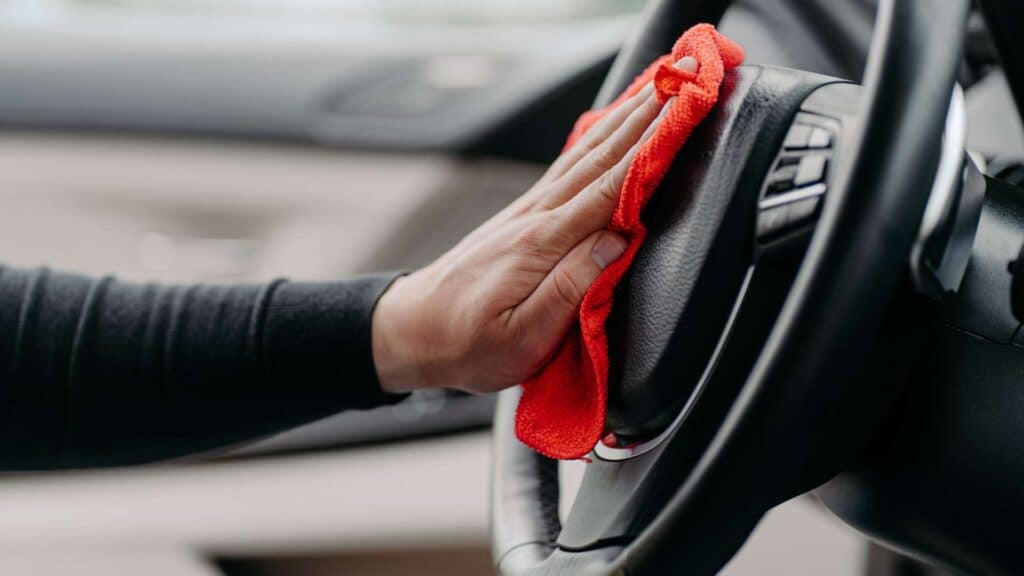
The best way to avert an ant invasion in your car is by always keeping your car clean. Clean and vacuum your vehicle interior regularly, focusing more on the hard-to-reach areas like seat crevices, floor mats, and the opening between the seats and center console.
While at it, remember to wipe down surfaces with a mild cleaner to eliminate food residue, spillage, and, most importantly, odors that could attract these invaders. Lastly, you should also pay attention to the exterior, ensuring there are no food particles or sticky residue that might entice ants to explore.
2. Never leave food or drinks in your car

The primary reason ants come into your vehicle is because they found food sources. And you don’t want to give them an open invitation by keeping such around. Experts have advised against keeping food in the vehicle for extended periods as cabin temperatures are known to get extremely hot.
Bacteria multiply during hot temperatures and can double in as little as 20 minutes, making the food unsafe for consumption. And besides the fact that food kept in a vehicle for an extended period becomes unsafe for consumption when exposed to heat, it could also attract these invaders.
So, you should always ensure you finish that snack once you’ve removed the food wrappers protecting them or remove it from your vehicle whenever you exit. And if you must store food or drink in your vehicle, it should be inside coolers or food containers. This way, the temperature is regulated, and ants cannot penetrate.
3. Use ant repellents
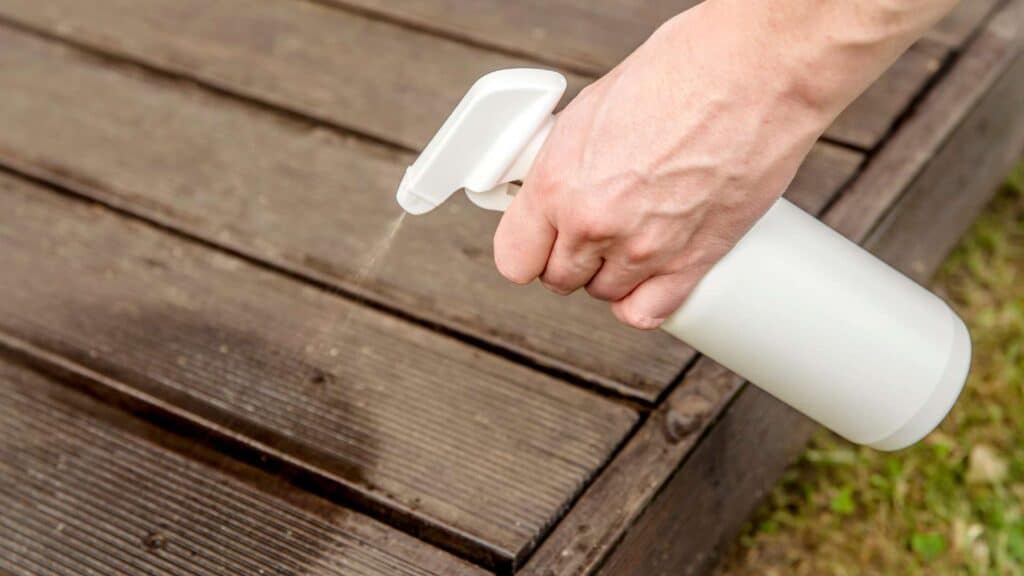
Another effective method of keeping these invaders away from your vehicle is by using repellants. The repellant deters the insects or other pests from approaching and settling in your vehicle as they find the smell upsetting.
Ortho Home Defence Insect Killer is a reliable insect repellant that one application of the product will deter ants, bugs, and cockroaches for up to 12 months. Spray the substance in and around your vehicle to create a barrier so the ants won’t cross. While at it, pay extra particularly attention to the wheels and axles, as they are areas that the ants usually climb on to come into your vehicle.
Suppose you aren’t comfortable spraying chemicals inside your car; you can use other methods to rid the annoying pests. Vinegar, peppermint, and cinnamon are natural ant repellants.
Besides being a natural cleaning agent with a strong smell that ants detest, Vinegar also removes ant trails. Mix up an equal portion of white vinegar with water before spraying in and around your vehicle.
Similarly, peppermint oil contains terpene and menthol, which is toxic to ants and keeps them away. Lastly, Cinnamon contains trans-cinnamaldehyde, which is very effective in repelling and killing ants.
4. Regular Inspections

Besides keeping your car clean, you also need to ensure that you are conducting routine inspections to ensure that everything is in order. One area that is often neglected when cleaning or inspecting is the engine bay.
Most drivers don’t pay close attention to what goes on under the hood. The engine bay tends to get greasy when there is a leak from the valve cover or timing chain. Thief ants, otherwise known as greasy ants, are usually attracted to greasy areas and travel great distances searching for food.
Leaving the oil spill in the engine for an extended period without cleaning can lead to an infestation. You don’t need to worry if you already have ants in your engine. We have a detailed article containing simple steps on how to get rid of ants in your engine bay.
You also want to check your axle and wheel wells, as they are also areas the ants may climb on to come onto your vehicle. Lastly, check the parking spot to be sure you aren’t parking close to ant nests.
5 Types of Ants that Can Live in Your Vehicle
Typically, the kitchen is where you would expect to find ants since it has an abundance of resources. But it is not uncommon to find these tiny invaders in vehicles. Below are five types of ants that can invade your vehicle when searching for food or nesting opportunities.
1. Argentine Ants
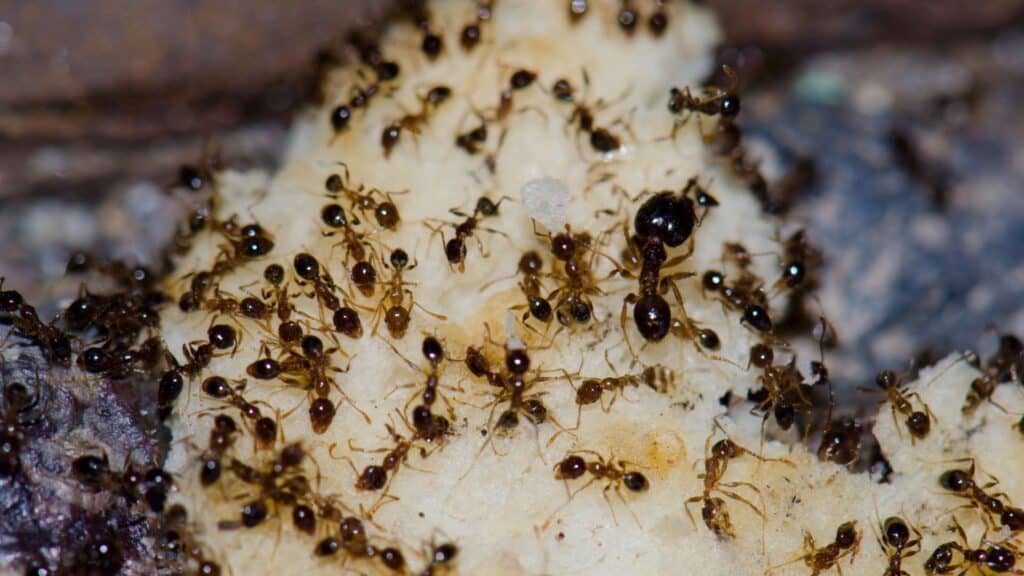
These small light brown ants are highly invasive. They are often attracted to sweet foods and can infiltrate vehicles when foraging. Since they are commonly found in warmer regions, a car is not so out of place for these ants to invade if their search for food in there turns productive.
Furthermore, a single colony of these ants usually has multiple queens, making it easy for them to expand their colony — a queen and accompanying worker ants move to a new site to build a nest. And if your car happens to be around the corner, they can invade it in search of warmth.
2. Odorous House Ants
Like Argentine ants, odorous house ants have multiple queens and expand their colonies through budding. These can adapt to any environment and build their nest almost anywhere, including inside cars — they enter through the smallest opening and live in door panels, under the back seat, or in ventilation systems.
Odorous house ants are usually dark brown or black and emit a foul smell when crushed, similar to rotten coconut or blue cheese. They are adept foragers and, like sugar ants, are often attracted to sugary foods and crumbs. So, you might want to reconsider giving up on finding that evasive french fry that fell inside your vehicle.
3. Carpenter Ants
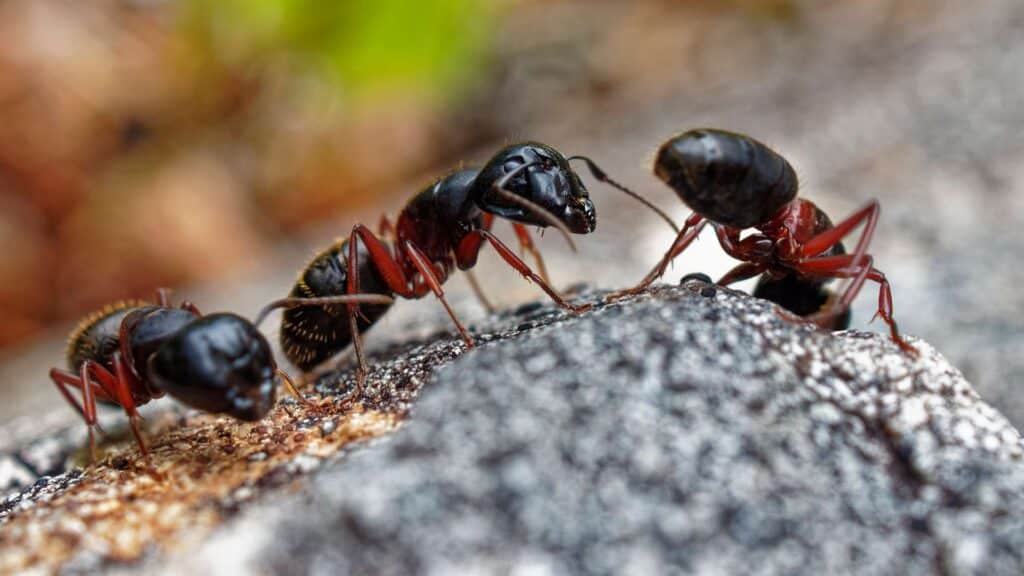
These ants were named carpenter ants because they tunnel through wood to build their nests. They are large ants with varying colors but often black or red. These ants eat just about anything and can nest almost anywhere — from trees to walls, attics, or rotting wood.
So, if you park close to their nest and the condition in your car is suitable enough for them, you should expect some of them to make their way in.
Some telltale signs of the wood-chewing ants in your vehicle include sawdust-like debris, rustling sounds from within the car, or visible trails of ants. And if their presence is ignored, the ants can cause costly structural damage.
4. Pharaoh Ants
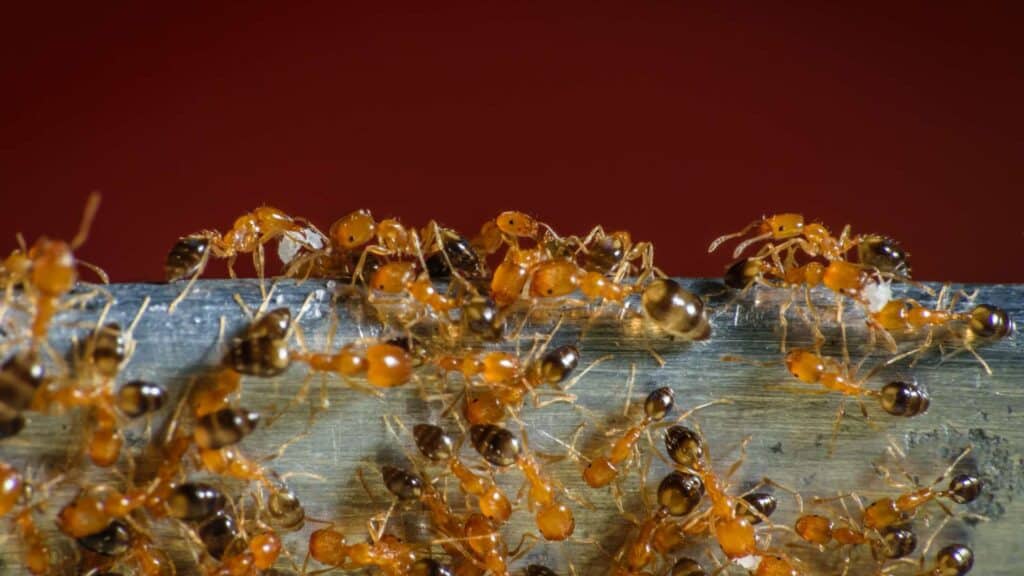
These ants are quite small but usually have an extremely large colony, as they reproduce rapidly. They are commonly found in warm climates, and it is not unusual for them to invade vehicles when searching for food or warmth.
Because of their small size, they can access even the tiniest openings and establish nests in hidden areas. They are also attracted to sugary substances but are known to carry salmonella and several other diseases, making it somehow challenging to eliminate them without professional intervention.
5. Grease/Thief Ants
Grease ants, otherwise known as thief ants, can sometimes be mistaken for pharaoh ants because of their close resemblance. Although these ants will eat almost anything, they prefer to eat grease, fats, and meats.
So, your greasy engine bay can be an open invitation to these insects. And these ants are known to transfer pathogens from decaying foods to other surfaces by walking across them.
How Do Ants Damage Your Car?
While most people believe that ants are harmless, allowing them to stay in your car for an extended period can lead to some costly damage, including:
1. Mechanical malfunctions
When in their numbers, these tiny invaders can interfere and damage moving vehicle parts or mechanisms. They can crawl into the window regulator when inside your door panels, causing the regulator to become stuck or operate erratically. Similarly, they’ve been known to clog air filters, invariably disrupting the airflow or causing total failure of the air conditioning system.
2. Electrical Failures
Besides mechanical damage, the army of ants in a car can also cause electrical failures. Some species can chew through wires, causing short circuits, malfunctions, or even total failure of electrical systems. So, if you are currently dealing with an ant infestation, you may first want to check that your non-functional bulb or door lock isn’t because the ants have tampered with the wire powering it.
FAQs
What scent do ants hate?
There are several scents ants find very offensive, and most will do an effective job repelling them. But when trying to repel ants from your vehicle, it is best to limit yourself to bug poisons or natural repellants like vinegar, peppermint oil, and cinnamon, as you don’t want your car smelling funny.
Will a car wash get rid of ants?
Ordinarily, washing and thorough cleaning of the entire cabin with a vacuum cleaner should help eliminate most of the ants in your car. But, suppose the ants are hiding in a hard-to-reach spot — A/C vent or door panel — baiting them may be the most effective way to eliminate them completely.
How do I get rid of ants permanently?
There are numerous methods to permanently repel these invaders. From baiting them to using bug poison, repellants, DIY solutions, pest control professionals, etc. However, the method that may prove most effective will largely depend on the type of ants and the location of the infestation.
What is the best solution for ants in cars?
Baits are still the most effective means of eliminating ants in cars, as they work to wipe out even the ones in hiding. The foraging worker ants find the bait and carry small portions back to their nest to feed others, thereby eliminating the entire colony.
Does vinegar drive away ants?
Yes, it does. Vinegar has a strong smell that removes the ant trails. Mix an equal portion of white vinegar with water in a spray bottle and spray the solution inside your vehicle cabin and areas the unwanted pests may climb on to enter your car.
How long will vinegar keep ants away?
The smell of vinegar can only repel the tiny invaders for a few hours. Ants can perceive vinegar for about 4 to 48 hours and will return as soon as the smell is gone or create a new trail to their food source.
Does soap remove ant trails?
The pheromone trails released by ants can be eliminated with dish soap and water. Mix your dish soap with water, and spray the solution on the ant trail using a spray bottle.
Conclusion
When dealing with an ant invasion in your car, removing the possible food sources is the first step to getting rid of the annoying pest. Afterward, you can use any of the methods recommended above to get rid of the tiny invaders. Allowing the invasion to go unchecked can cause costly damage.
However, the best way to keep your vehicle ant-free is by being proactive. Regularly clean and inspect your car, engine bay, and parking spots to ensure they are free of dirt or anything that could attract ants. Never leave food or drinks in your vehicle, and occasionally spray ant repellants to get rid of the invaders.

